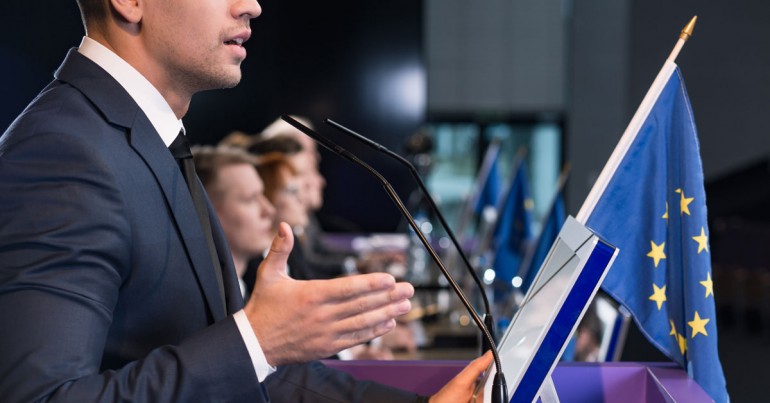
Transition to higher pound
On Monday the two politicians with the longest titles in the world stood together on the podium; David Davis, the Secretary of State for Exiting the European Union and Michel Barnier, the European Chief Negotiator for the United Kingdom Exiting the European Union. To not-quite-rapturous applause they revealed that they had reached agreement on a 21-month Brexit transition period.
There remain holes in that agreement, most importantly the bit that says Northern Ireland will remain in the single market, governed by EU rules and courts, in perpetuity. Both sides would rather that were not the case but as yet nobody has come up with a way to avoid it.
Whatever their doubts, investors reacted positively to the news. The pound was the day’s top performer, putting the seal on what has been a cracking week and a good year-to-date. On the week sterling is up by 1.6%, having added one euro cent and one and a third US cents. Since the beginning of January sterling has lost out only to the Japanese yen and the Norwegian krone. It has strengthened by an average of 2.3% against the other dozen most actively-traded currencies, with a 3.7% gain against the dollar and a 1.1% advantage over the euro.
King dollar
Donald Trump has appointed a new director of the National Economic Council to replace the one he lost a fortnight ago. Larry Kudlow – for it is he – has a background in TV financial journalism and made clear on his first outing that he is not one for hiding lights under bushels. In an interview he said “I would buy king dollar and sell gold”. Investors proceeded to do just that.
He also observed that, when it comes to monetary policy, “the Fed will do what it has to do” although he does “hope they don’t overdo it”. The Federal Open Market Committee is likely to announce on Wednesday that it has added another quarter of a percentage point to its Funds rate benchmark. It is also expected to reveal its anticipation of further such increases in the coming year. There may be another two or three, and the more there are, the merrier for the dollar.
Old Lady
The day after the Fed does its stuff it will be the turn of the Bank of England to say what it has, or has not done to interest rates. The assumption is that Bank Rate will remain at 0.5% for a fifth month, and that the Monetary Policy Committee minutes will hint strongly at a rate increase when it holds its next meeting in May.
There is an outside chance that the MPC will deliver that increase this week. If it does, sterling could be expected to jump higher
The Brexit transition agreement means that people and businesses will have certainty about their situation until 31 December 2020.
Thereafter, they still don’t have a clue how they will stand. For the moment, investors are not unduly worried about it but their continued insouciance cannot be assumed if the post-Brexit trade deal does not take shape as expected.
Sarah, Senior Account Manager at Moneycorp
Moneycorp is one of the largest international payment companies supporting over 90 currencies. Last year Moneycorp traded over £22.6 billion worth of international money transfers. Find out how Moneycorp can help you with your international transfer here.





